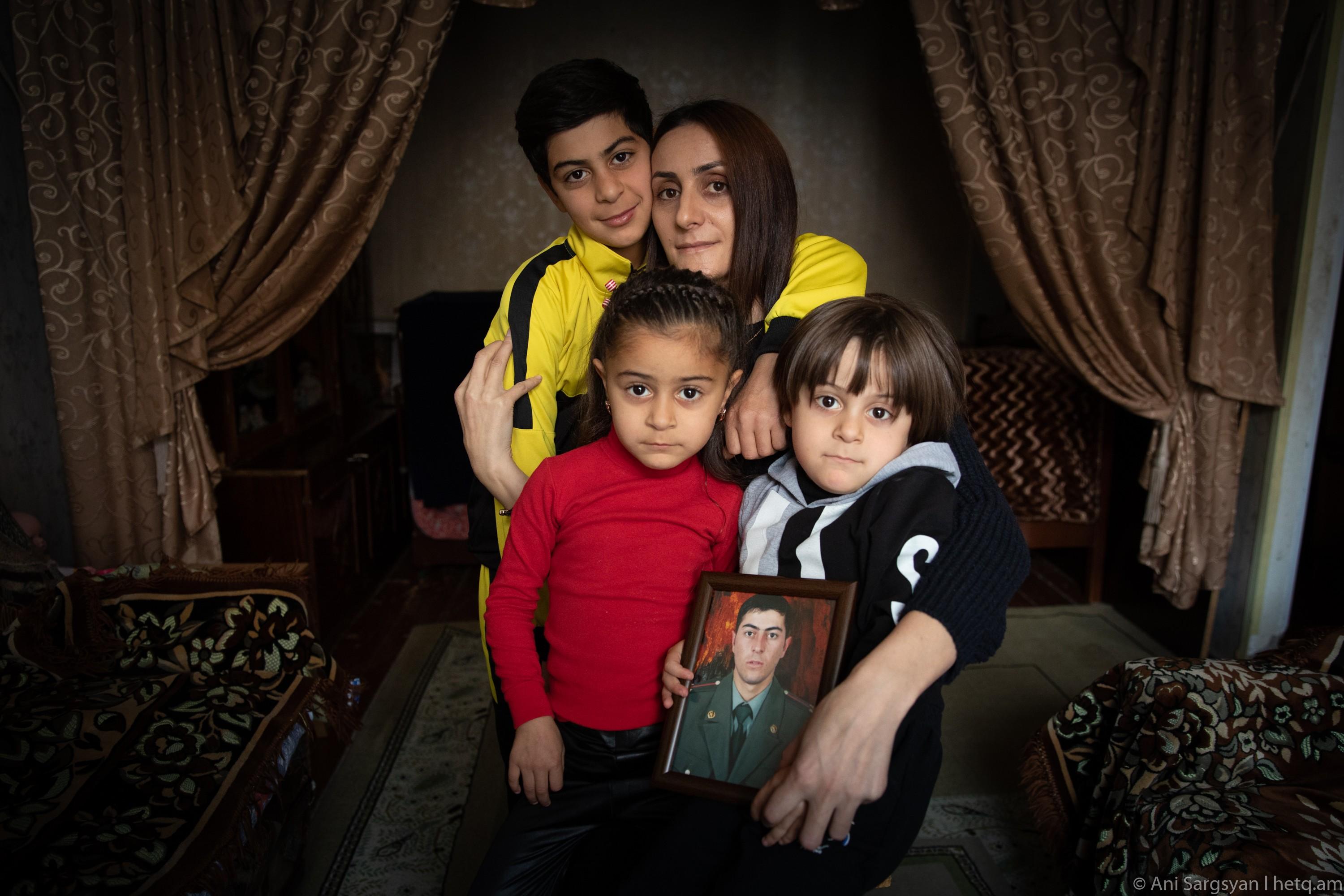
“Where’s Daddy?” Satenik Yeghiazaryan Tells Her Kids Their Father Has Become an Angel
Satenik places her husband’s medals and honorary awards on the writing desk. Mark and Maria aged four, quickly run to the table and pick them up.
"This is my dad," says Mark, pointing to one of the awards issued to Major Garnik Khachatryan. Maria stretches out on the table to grab a medal in the corner: "He's my dad, he's my dad,” she says while Satenik silently watches.
"Where’s my father?" asks Maria, holding the medal.
"Look, daddy won't let the Turk fire," says Mark, pointing to the tank on one of the awards. He clutches the papers tight to his chest. The boy then takes the Legos out of the box and makes a machine gun. Lurking near the door, he looks to left and right and shoots. He says he’s captured an enemy position.
Satenik does not speak. She looks at the children and smiles. Every night, before going to bed, the children kiss their father’s photo.
Mom has told them that their father has become an angel. Maria cries a lot. Satenik says she cries and says that she only wants her father, nothing else. Satenik’s eldest son, eleven-year-old Husik, understands everything.
"He suffocates his emotions. Once, I took him to see for a moment (the day of his father's repose - ed.). He never went back, saying he couldn’t do it. I talk to him a lot. I don’t want him to become a recluse. He doesn’t want me to tell him that his father is no more. He wants to forget reality. We had not seen Garnik for three months because of pandemic. He was training recruits in Martakert. And now, Husik thinks that his father is still there,” says 31-year-old Satenik Yeghiazaryan.
Major Garnik Khachatryan's family, three children and his wife, live in a one-room apartment in Nor Hatchn, a small town in Armenia’s Kotayk Province. It’s a friend’s apartment temporarily provided them. During the war, they left everything in Mataghis, a village in northeastern Artsakh, and came to Armenia, hoping that the war would soon end, allowing them to return home.
Early on the morning of September 27, Major Khachatryan was on his way to the military base when a loud explosion rang out. The children had already woken up. Satenik was worried, but her husband said that there was no need to be afraid, explaining that Armenian troops merely responding to Azerbaijani shelling. The second explosion shattered the windows in the house. Garnik hugged the children and ran down to the shelter. Satenik gathered some clothes and family papers and followed him. There were around thirty children huddled in the basement, in their pajamas.
"We knew that fighting had broken out. From the shelling you understood that they weren’t targeting military positions but the civilian population. They were firing missiles at us to distract the attention of the officers,” says Satenik.
They had to stay in the basement for seven hours. They then got a ride and came to Armenia. Some residents went to Stepanakert. One pregnant woman from the building was injured in the arm. She gave birth in Stepanakert, naming the boy Monte in honor of freedom fighter Monte Melkonian
"Let me show you our building," Satenik says, looking for the photos on her phone.
"Did you have time to take photos?" I ask.
"No, when Turks took the building, they took photos, and posted them on the Internet," Satenik answers. "Do you know what impressed me that day? That I, my girlfriend, and our first-floor neighbor were off to one side sitting and praying. It happened to all three of us: Garnik, Manvel and Yervand. Yervand was the first to die from the building. His body has not yet been found. Then came Lieutenant Colonel Yervand Karapetyan. On the second of the month, it was Garnik. He would have turned 33 in February.
On the morning of October 2, Satenik called her husband. His phone had been turned off. It had never happened in their twelve years together. Even during a meeting, he’d pick and whisper that he’d call later. "When the call was refused, I knew it wasn’t him,” says Satenik.
Garnik Khachatryan was killed on the night of October 1 in a shootout in Talish. His war buddies told Satenik he fought till the end and was killed by a sniper.
“He was shot in the head. I keep asking if his helmet had fallen off or something. One day, I’ll appear before God and my first question will be, why him?" Satenik says.,
Satenik and Garnik are from Vardenis area in Armenia, from the villages of Tzovak and Akunk.
Garnik first saw Satenik in Vardenis and was infatuated with her way with words.
"If I had seven lives, I’d spend them all with Garnik. Every year with him was an eternity,” she says.
Garnik graduated from Armenia’s Vazgen Sargsyan Military University. After getting married in 2008, they moved to Berd, Sotk, Chinari, Aygedzor, Kapan. The last stop was Mataghis. Husik is in the 6th grade and has already changed six schools. Such is a soldier’s family life.
From 2015 until the start of the war in September, the family resided in a building for officers in Mataghis. When Garnik decided to move to Mataghis, Satenik tore up both applications. Her husband was adamant.
"I was terrified to hear the word Mataghis. It seemed like a very dark place to me. But when I went, believe me, I came to like it,” says Satenik. The twins, Maria and Mark, were born in Artsakh.
Satenik always refers to her late husband as “My Garnik”. Maria, playing with a new doll, watches her mother intently for any change in facial expression.
"What's the name of your doll?" I ask when I see her move the doll from the table to the bed.
"Chubby," Mark replies, laughing.
“No, she's not chubby, she's Diana," Maria answers, then says that the doll also has a hat.
Satenik says Garnik was a caring father. No matter how busy he was, he found time to walk with the children. They visited many historical and cultural places together this summer.
"Maybe he was doing it to make up for these days," says Satenik. Garnik always bought toys for the children, saying that his father had died early and that he wanted his children to have everything.
“The last time I saw Garnik was in the basement, in Mataghis. By the time I turned around, he was already gone. Then he called and said he couldn’t talk for long because there were so many wounded. I told him he didn’t even kiss the kids good-bye.
"If they sent you back in time, what would you have said?” I ask.
“I do not know. I probably would not have let him go. Knowing him, he would have gone anyway.”
The family left everything in Mataghis: the house, the car, the property, even the children's clothes. They mean nothing for Satenik. She just wants the man who created all that by her side. She laments the fact that there is nothing of Garnik’s, no mementos, to show the kids when they grow up.
After moving to Armenia, Satenik applied to the Ministry of Labor and Social Affairs. They said that since she is registered in Artsakh, she needs to apply to the Artsakh authorities.
"I was very hurt. I was told, roughly speaking, that I am are no longer an officer's wife, that I’m one of the needy now. I’m not destitute. I’m the wife of a dead Artsakh hero,” says Satenik.
Silently, in her mind, Satenik often converses with her husband’s photo. She wants to do things now the way Garnik would have wanted. She bought Maria’s new doll a few days ago. Satenik says that when he entered the store, a voice seemed to prompt her to buy the doll.
Before I say my goodbyes, Husik enters the house. The eleven-year-old seems to understand more than he lets on. His father wanted Husik to become a military doctor. The boy says he wants to become a surgeon.
It’s noon when we leave. In the narrow corridor of the house, in the corner, is a photo of Garnik, circled with candles. It’s Sunday, and Satenik is burning incense.
The family can't visit his grave every week because he was buried in his native village, Akunk.
"Maybe God needed an army, that's why he took him. If you noticed, he took the best people," Satenik says.
 Videos
Videos Photos
Photos
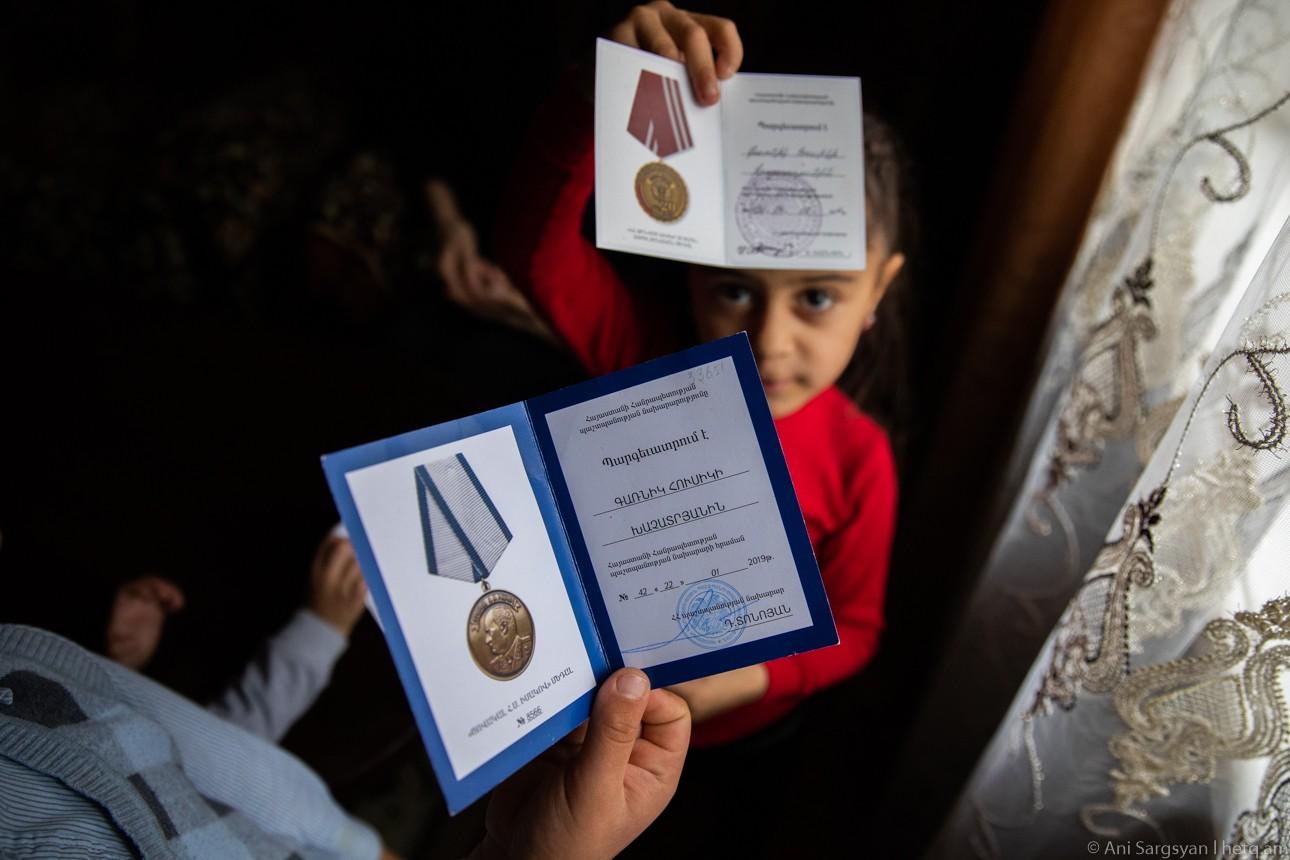
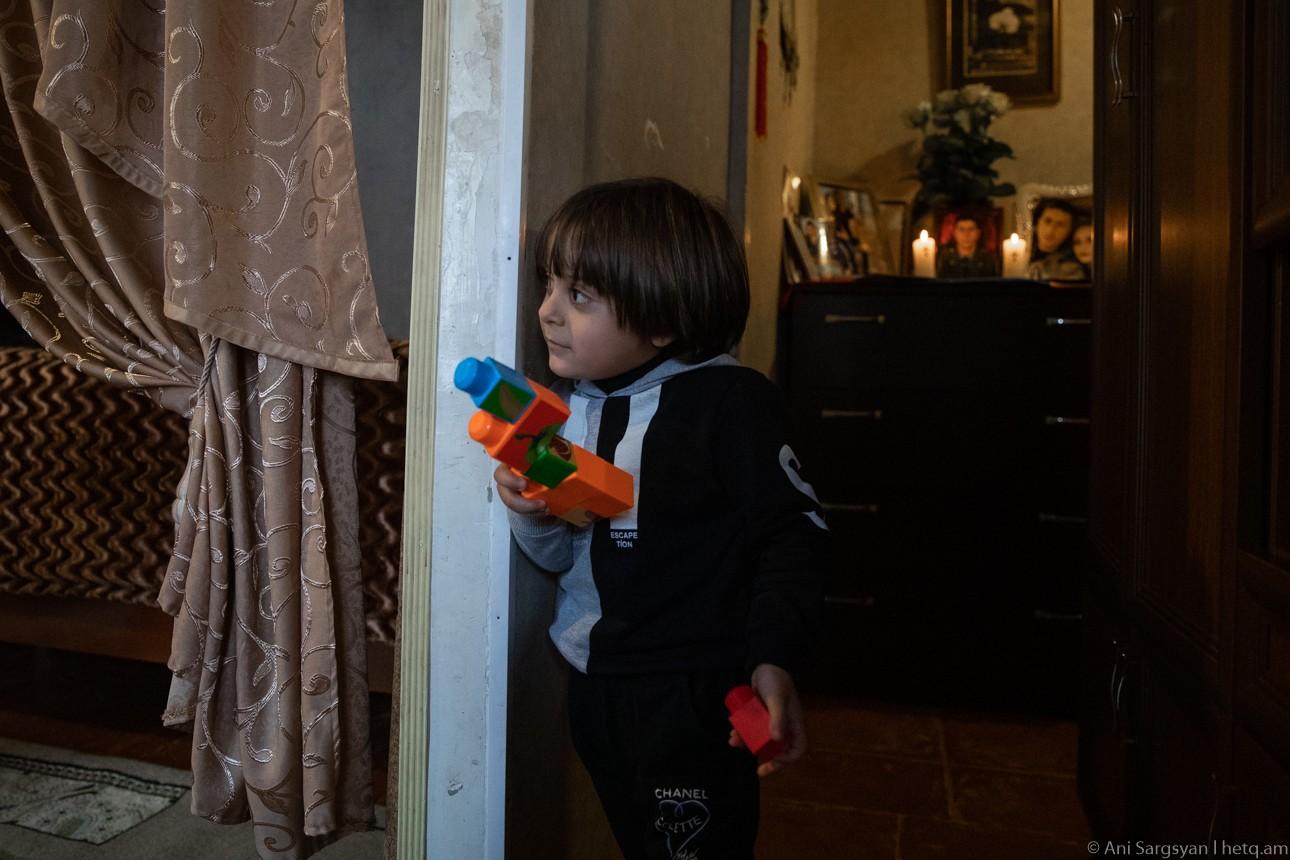
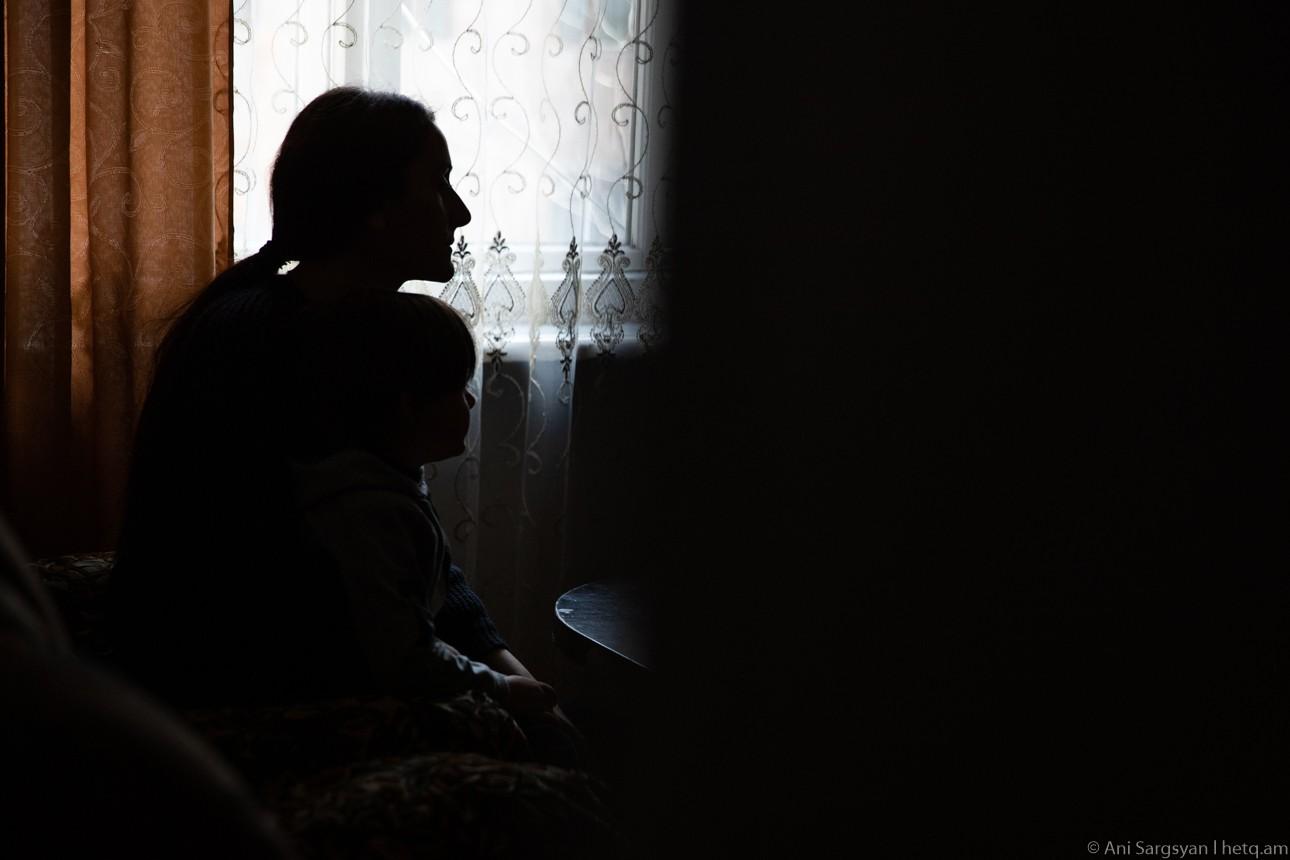
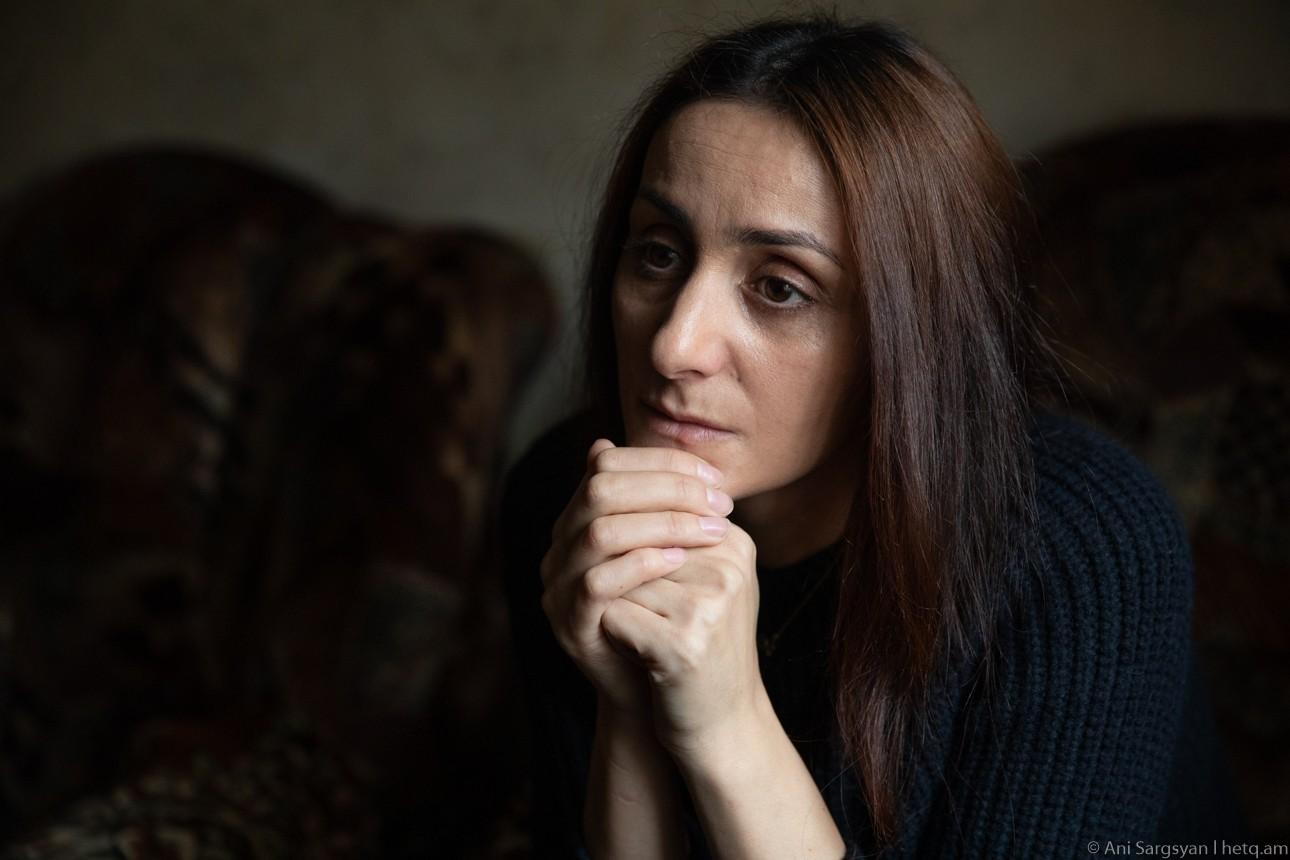
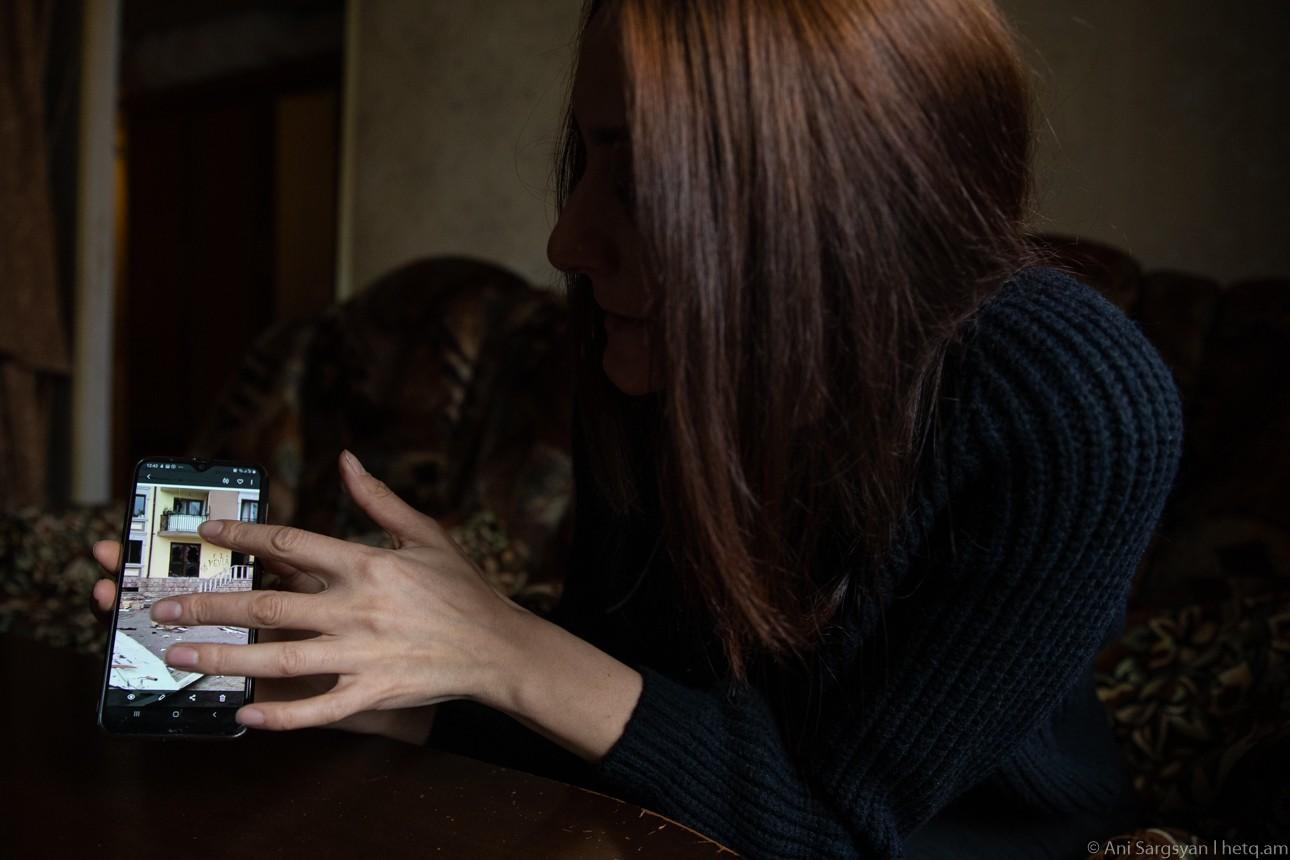
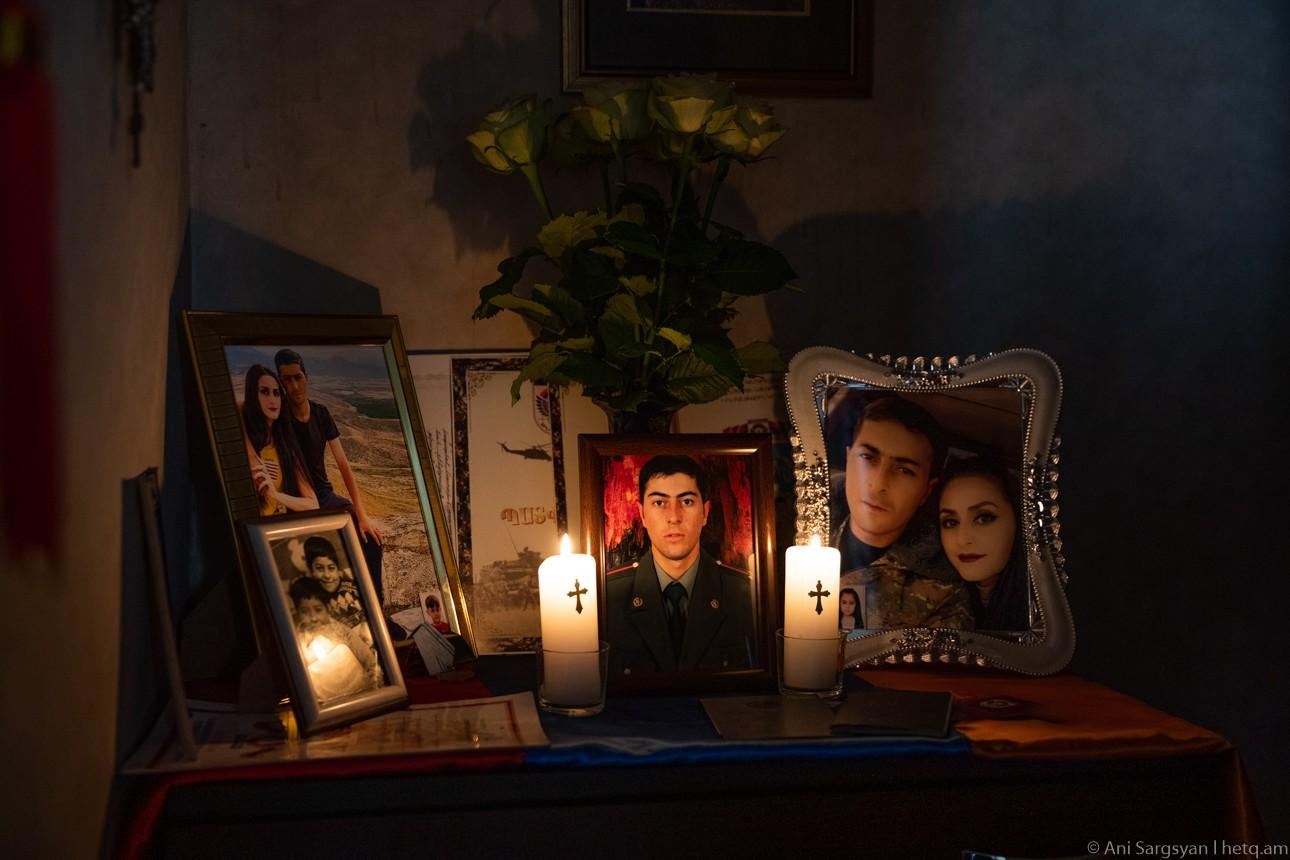
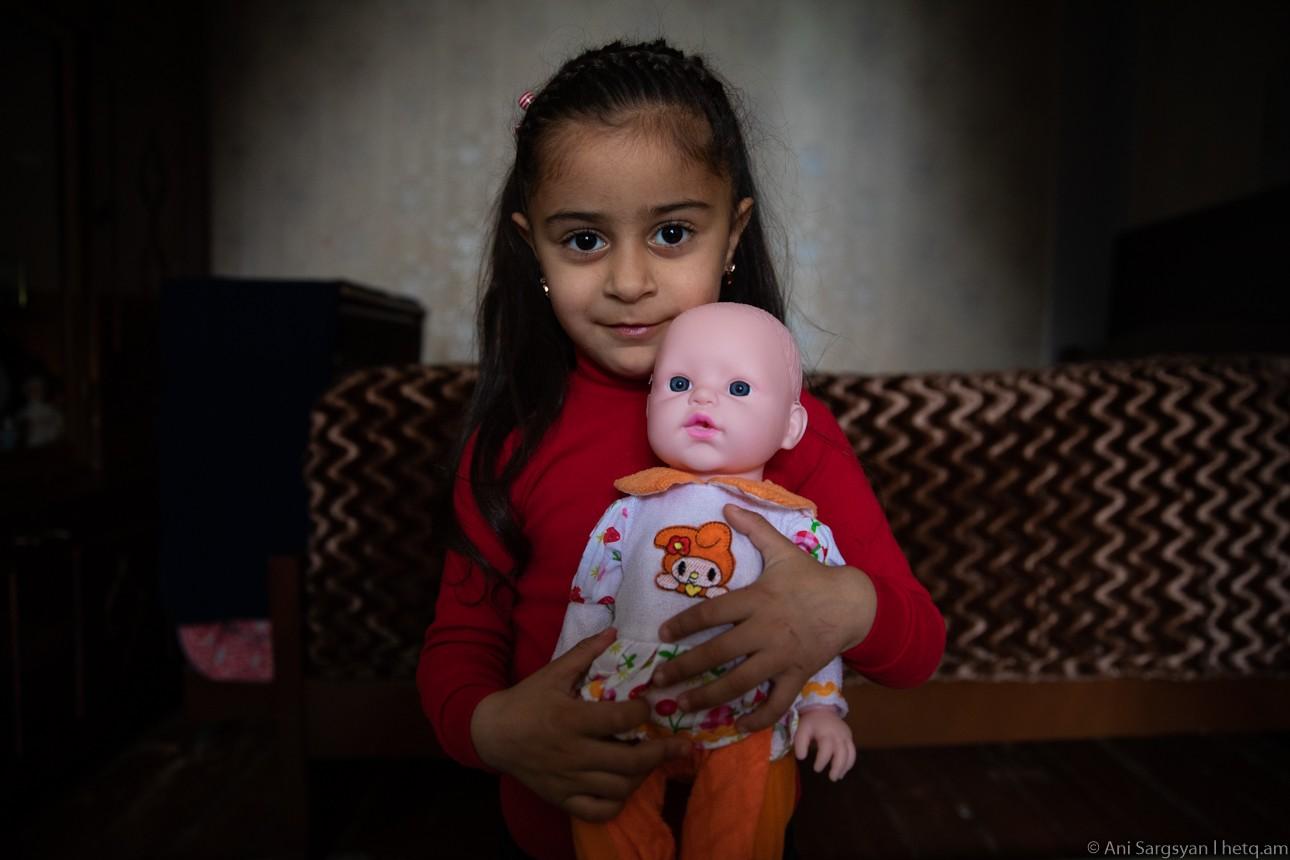
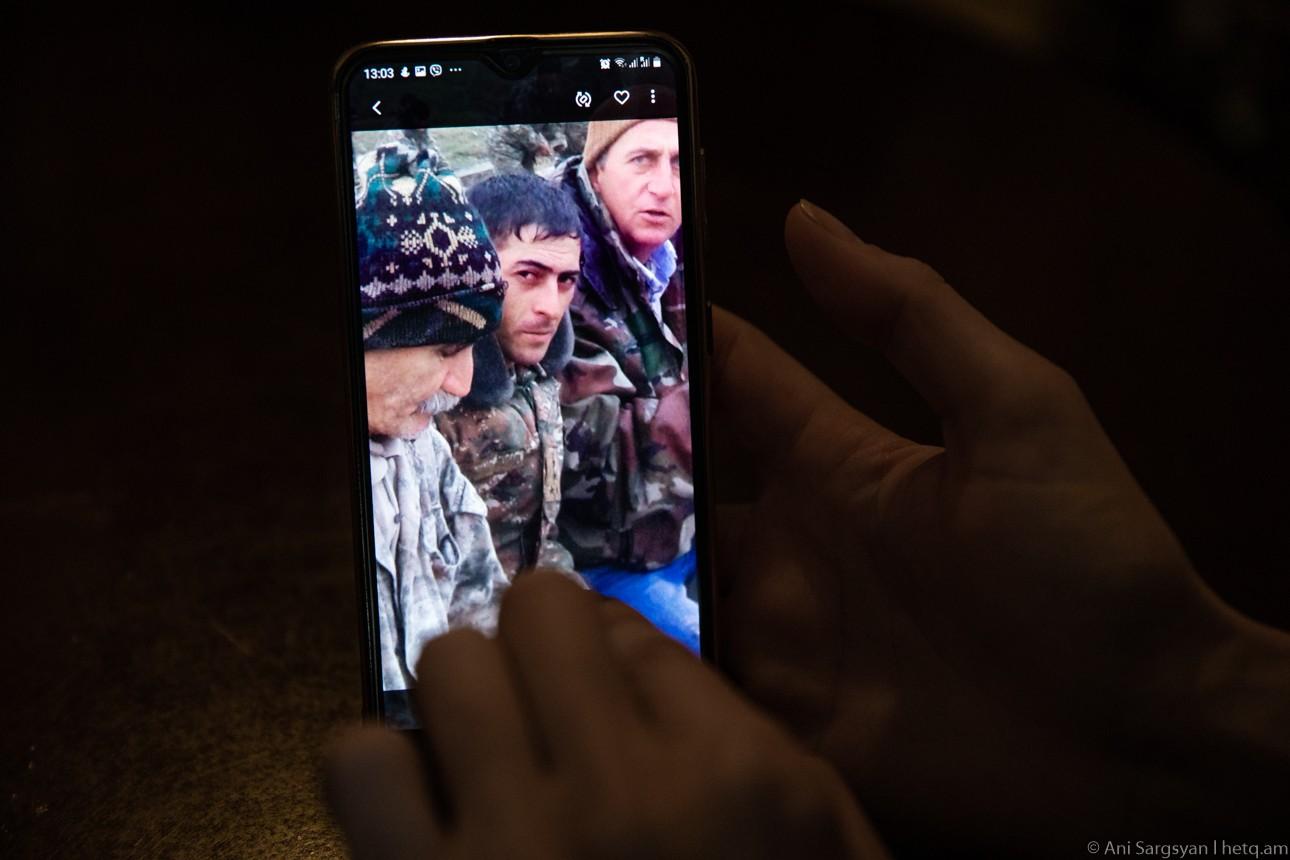
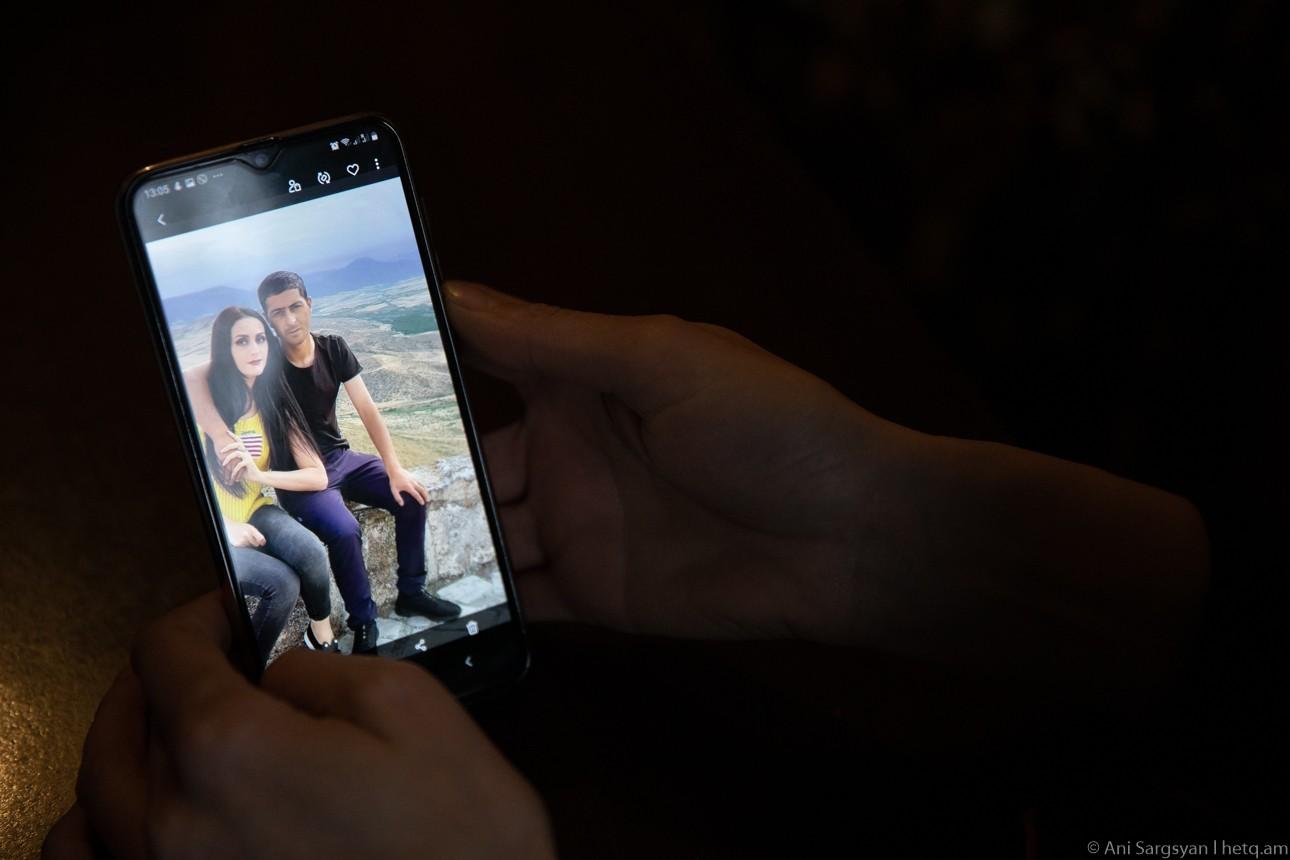
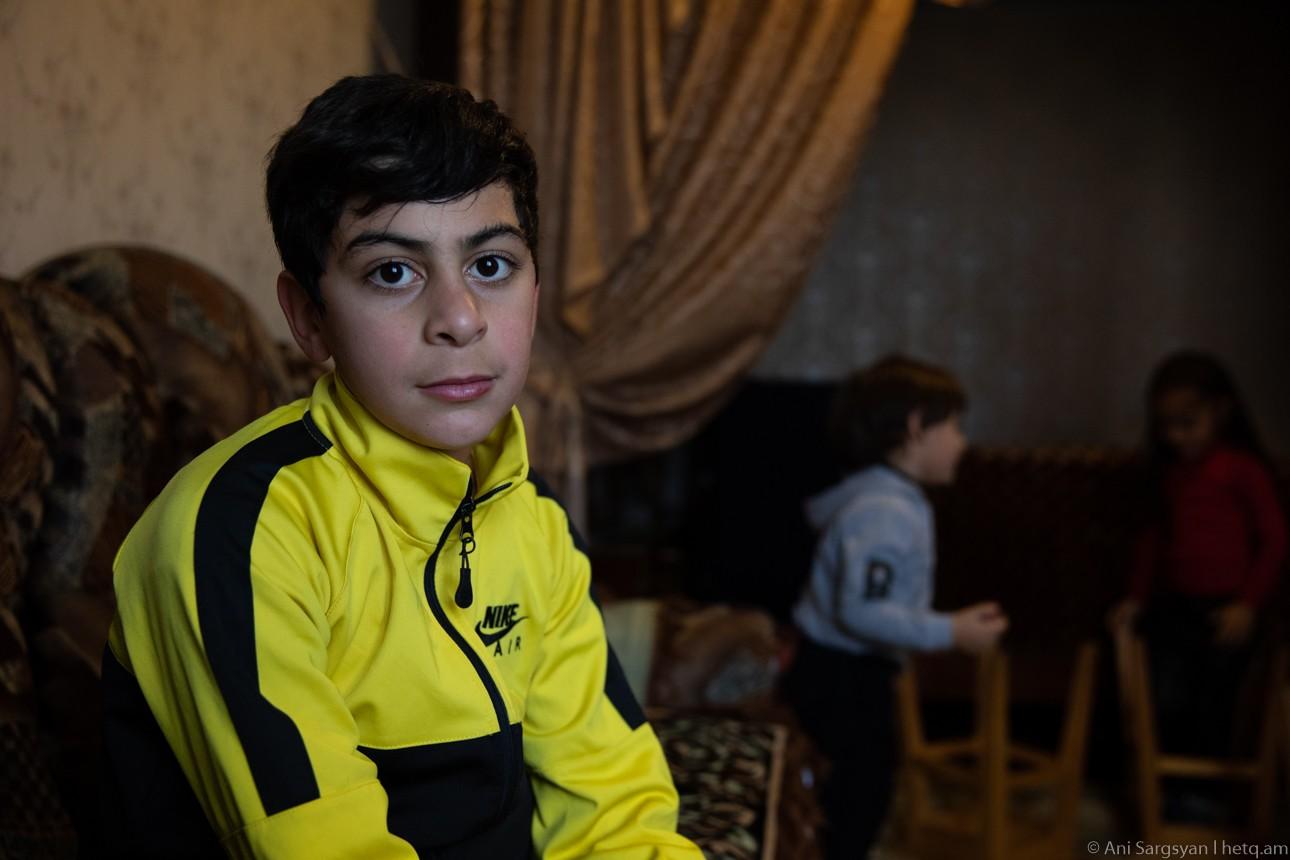
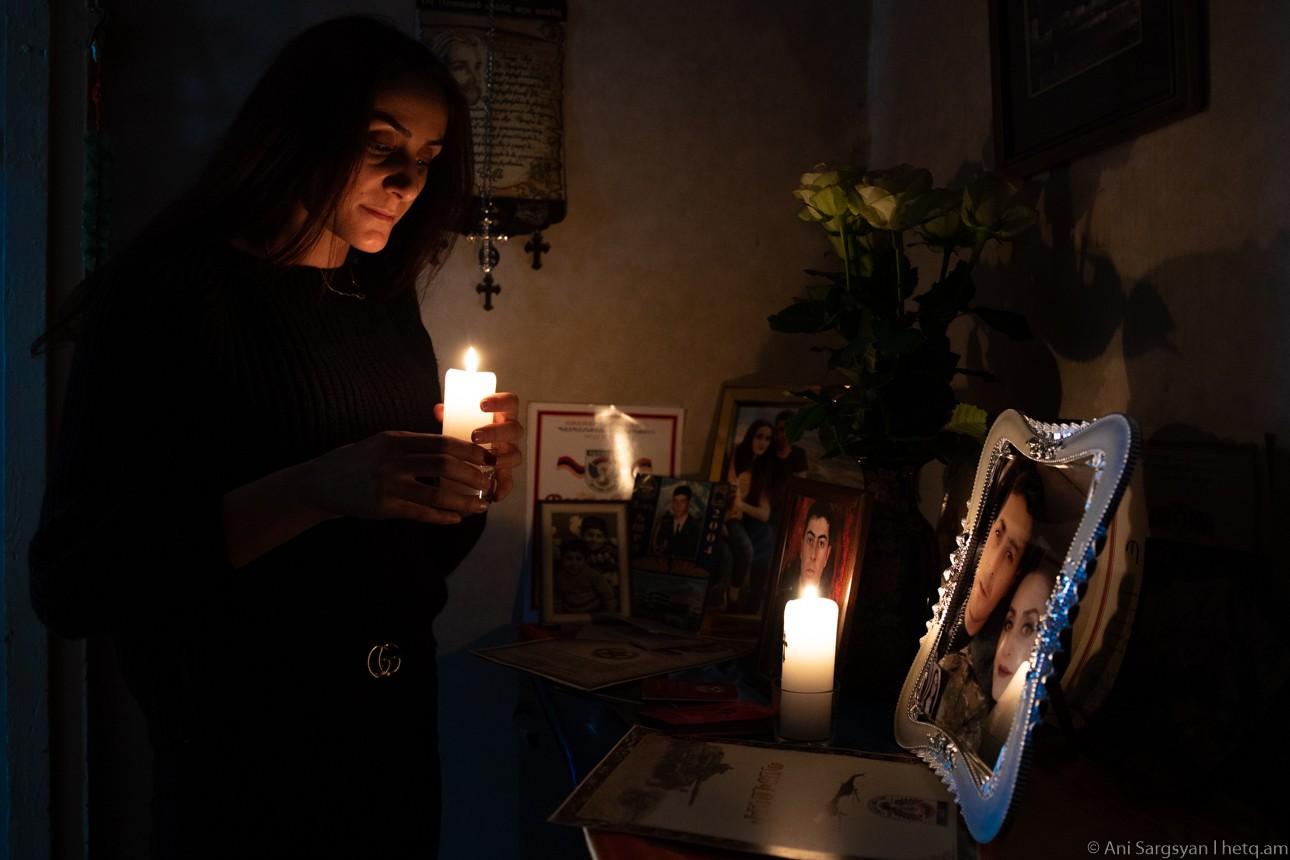
Comments (1)
Write a comment